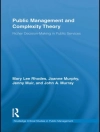| Query | SELECT
(SELECT categories_id FROM categories_description WHERE language_id = 19 AND categories_id = 000) AS cat1,
(SELECT categories_id FROM categories_description WHERE language_id = 19 AND categories_id = 00 AND SUBSTRING(categories_id,2,1) != "0") AS cat2,
(SELECT categories_id FROM categories_description WHERE language_id = 19 AND categories_id = 0 AND SUBSTRING(categories_id,3,1) != "0") AS cat3,
(SELECT categories_id FROM categories_description WHERE language_id = 19 AND categories_id = AND SUBSTRING(categories_id,4,1) != "0") AS cat4,
(SELECT categories_name FROM categories_description WHERE language_id = 19 AND categories_id = 000) AS cat1name,
(SELECT categories_name FROM categories_description WHERE language_id = 19 AND categories_id = 00 AND SUBSTRING(categories_id,2,1) != "0") AS cat2name,
(SELECT categories_name FROM categories_description WHERE language_id = 19 AND categories_id = 0 AND SUBSTRING(categories_id,3,1) != "0") AS cat3name,
(SELECT categories_name FROM categories_description WHERE language_id = 19 AND categories_id = AND SUBSTRING(categories_id,4,1) != "0") AS cat4name,
(SELECT url_text FROM commerce_seo_url_without_language WHERE categories_id = 000) AS cat1url,
(SELECT url_text FROM commerce_seo_url_without_language WHERE categories_id = 00 AND SUBSTRING(categories_id,2,1) != "0") AS cat2url,
(SELECT url_text FROM commerce_seo_url_without_language WHERE categories_id = 0 AND SUBSTRING(categories_id,3,1) != "0") AS cat3url,
(SELECT url_text FROM commerce_seo_url_without_language WHERE categories_id = AND SUBSTRING(categories_id,4,1) != "0") AS cat4url,
(SELECT wod_count_products FROM categories WHERE categories_id = 000) AS cat1cnt,
(SELECT wod_count_products FROM categories WHERE categories_id = 00 AND SUBSTRING(categories_id,2,1) != "0") AS cat2cnt,
(SELECT wod_count_products FROM categories WHERE categories_id = 0 AND SUBSTRING(categories_id,3,1) != "0") AS cat3cnt,
(SELECT wod_count_products FROM categories WHERE categories_id = AND SUBSTRING(categories_id,4,1) != "0") AS cat4cnt
|












